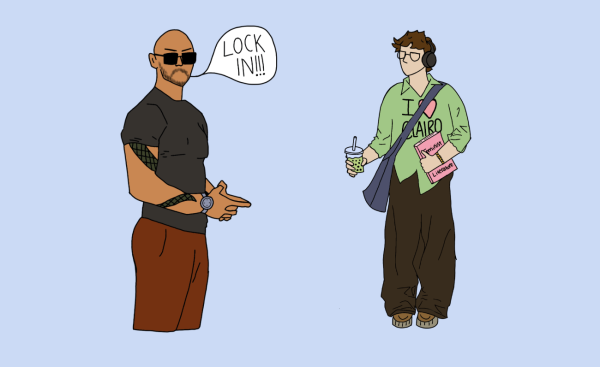Jordan Peele is redefining the horror genre

Photo Courtesy IMBd
The horror movie genre is able to tap into the minds of its viewers and play with their worst fears. Some of the most terrifying films are the ones that blur the line between reality and fiction. Sadly, a lot of horror movies have fallen into a pattern of reusing the same racist tropes, leaving little room for experimentation or social commentary. Most classic horror films, such as “The Shining,” perpetuate this stereotype of a magical token Black character who is merely there for a white protagonist’s character growth.
However, Director Jordan Peele has been able to bring social issues to light throughout his career. The films that he has created deconstruct the stereotype of the token Black character that dies first. His films incorporate gore, the complexities of race and discrimination in this country. Before he started his career in making movies, Peele was a sketch comedian. Later he decided to transition into filmmaking and made his debut in 2017 with the film “Get Out.” From there, he immediately gained popularity after the film’s box office success, and he received multiple awards, including Academy Awards for Best Director, Best Actor and Best Picture. Peele also received Best Original Screenplay and became the first Black screenwriter in history to win in that category. His success did not stop there. Soon after, he produced “Us,” which received numerous accolades as well. Peele continued to work on films that showcased Black stories and masterfully incorporated social commentary. His approach to horror movies strayed far from tradition in the way that he subtly addresses racism in the plot of his films.
Most horror movies that have been classified as classics are most notable for performances such as Jack Nicholson’s characters in “The Shining,” or for memorable antagonists such as Freddy Krueger or Michael Myers. Peele’s “Get Out” has also been considered a part of this iconic selection of horror movies. “Get Out” follows a Black man, Chris, who goes to visit his white girlfriend’s family for the first time. At first, the over-accommodating behavior seemed to just be an attempt to cope with their daughter’s interracial relationship, but the situation quickly escalates into something much more sinister.
“Get Out” and its beautifully crafted script that is riddled with symbolism communicates to viewers the harsh reality of today’s society. The “Sunken Place” is an instance Peele refers to as a metaphor for systemic racism. Much like the “Sunken Place,” systemic racism silences and marginalizes Black people and their voices. Peele was able to masterfully address race and have the audience experience the anxiety and fear that Black people in this country experience throughout the storyline. The way he can frame white colonialism and superiority as the true villain of the story brings a different perspective to traditional horror movie ideology while also addressing a much larger issue.
A more recent take on the 1990’s is “Candyman,” in which Peele wrote the screenplay and co-produced the remake which hit theaters in 2021. Directed by Nia DaCosta, “Candyman” follows an urban legend about a hook-handed killer that supposedly haunted those who repeated his name, Candyman, three times. The Candyman’s origin story surrounds a regular Black man who becomes this monster because of the violence inflicted upon him by white people, and thus starts this cycle of violence that viewers watch unfold. Much like the original, Dacosta’s version incorporates the same themes of police brutality.
An artist looking for a new angle explores the macabre background of the Candyman, but slowly descends into madness as the story consumes and destroys him. The artist, Anthony McCoy, after being inspired, showcases his Candyman-inspired pieces at an art gallery in hopes of winning over white critics. The line “…they love what we make, but not us…” rings true in the way that society constantly appropriates Black culture without giving any recognition to its origins.
Peele’s work in the film industry has not only gained momentum amongst audiences, but has also opened doors for other people of color in Hollywood. In almost all of his films, the cast has predominantly had Black leads. Through the films that Peele has worked on, he has been able to create a whole new definition of what horror should look like.












